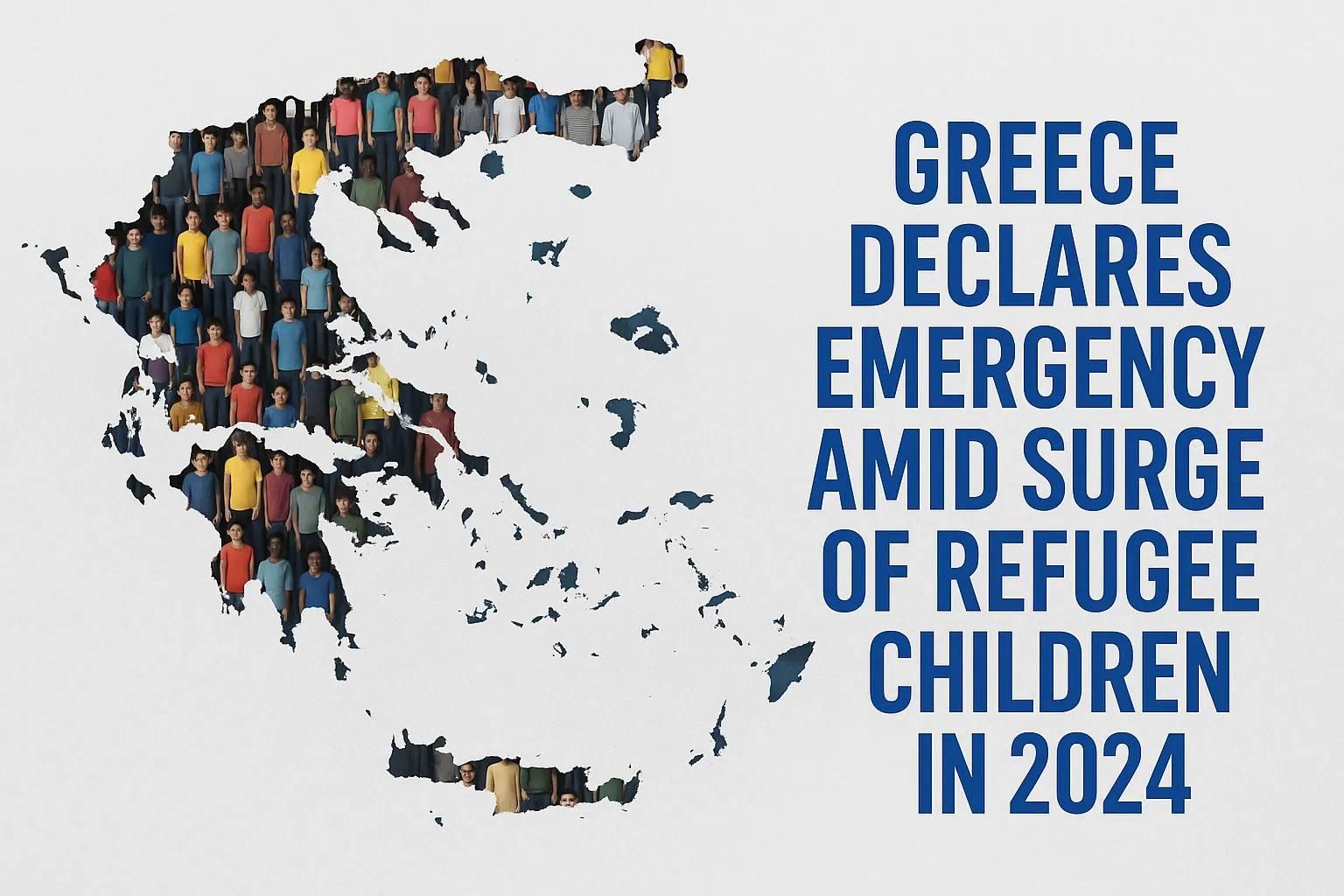Greece is confronting what experts are calling a “child refugee emergency.” In 2024, the number of underage refugees arriving in the country more than doubled, exceeding 13,000. The most alarming aspect? A significant portion of these children are unaccompanied minors from Syria and Egypt—children traveling alone, without parents or guardians, into a foreign land.
This surge has triggered a wave of concern across humanitarian organizations, child protection groups, and government agencies. They’re united in one message: action can’t wait.
Why Is This a Crisis?
A growing number of refugee children is not new to Greece, but this year’s sharp increase has overwhelmed the existing infrastructure. With over 13,000 minors recorded so far in 2024—many of them alone—the system is buckling under pressure.
These aren’t just numbers. They are vulnerable children facing the worst possible start to their lives in Europe. Many arrive after dangerous journeys, traumatized, malnourished, and without any legal guardian to guide them. Their safety, education, and basic human rights hang in the balance.
Who Are These Children?
Most of the new arrivals come from war-torn or unstable regions, particularly Syria and Egypt. These minors are fleeing armed conflict, poverty, and political unrest. They arrive in Greece seeking safety—but often find a system not fully prepared to handle their specific needs.
Unaccompanied children face unique risks. They’re more susceptible to exploitation, abuse, and trafficking. And without immediate intervention, many fall through the cracks of protection and integration systems.
What’s Being Done?
Child rights organizations are calling for urgent measures from both Greek authorities and EU institutions. The core demands include:
1. Immediate Safe Shelter
Emergency accommodation is the top priority. Many unaccompanied minors are still held in detention-like facilities or live in overcrowded camps. NGOs stress the need for child-friendly, safe housing environments.
2. Legal Guardianship and Protection
Without legal representation, minors cannot navigate asylum procedures or claim their rights. There’s a push to appoint trained guardians who can advocate for each child’s best interests.
3. Access to Education and Psychological Support
Integration starts with inclusion. Advocates are urging authorities to fast-track access to school placements, mental health services, and language programs tailored to trauma-affected youth.
Table: Key Challenges and Responses to Greece’s Refugee Child Surge
| Issue | Urgent Need |
|---|---|
| Overcrowded shelters | Child-friendly, safe housing solutions |
| Legal vulnerability | Trained guardians and legal aid |
| Educational exclusion | Access to schools and learning support |
| Trauma and isolation | Mental health and social integration programs |
The Stakes Are High
Leaving these children in limbo is not just a moral failure—it’s a legal and humanitarian disaster. Greece, as a frontline EU member, cannot shoulder the burden alone. While local NGOs are doing all they can, they’re stretched thin and under-resourced.
European solidarity is crucial. Whether through relocation programs, funding for child protection services, or coordinated asylum policies, the EU needs to share this responsibility.

